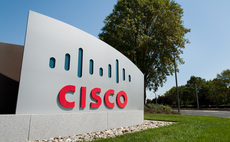Networking giant warns it will pull no punches in fight to gain market share in datacentre arena
Bernadette Wightman: We are taking a more aggressive approach to competition in the market Cisco is urging its partners to get more aggressive in the marketplace as it aims to surge ahead of its ...
To continue reading this article...
Join CRN
- Enjoy full access to channelweb.co.uk - the UK’s top news source for the IT channel
- Gain the latest insights through market analysis and interviews with channel leaders
- Stay on top of key trends with the Insider weekly newsletter curated by CRN’s editor
- Be the first to hear about our industry leading events and awards programmes
Already a CRN member?







